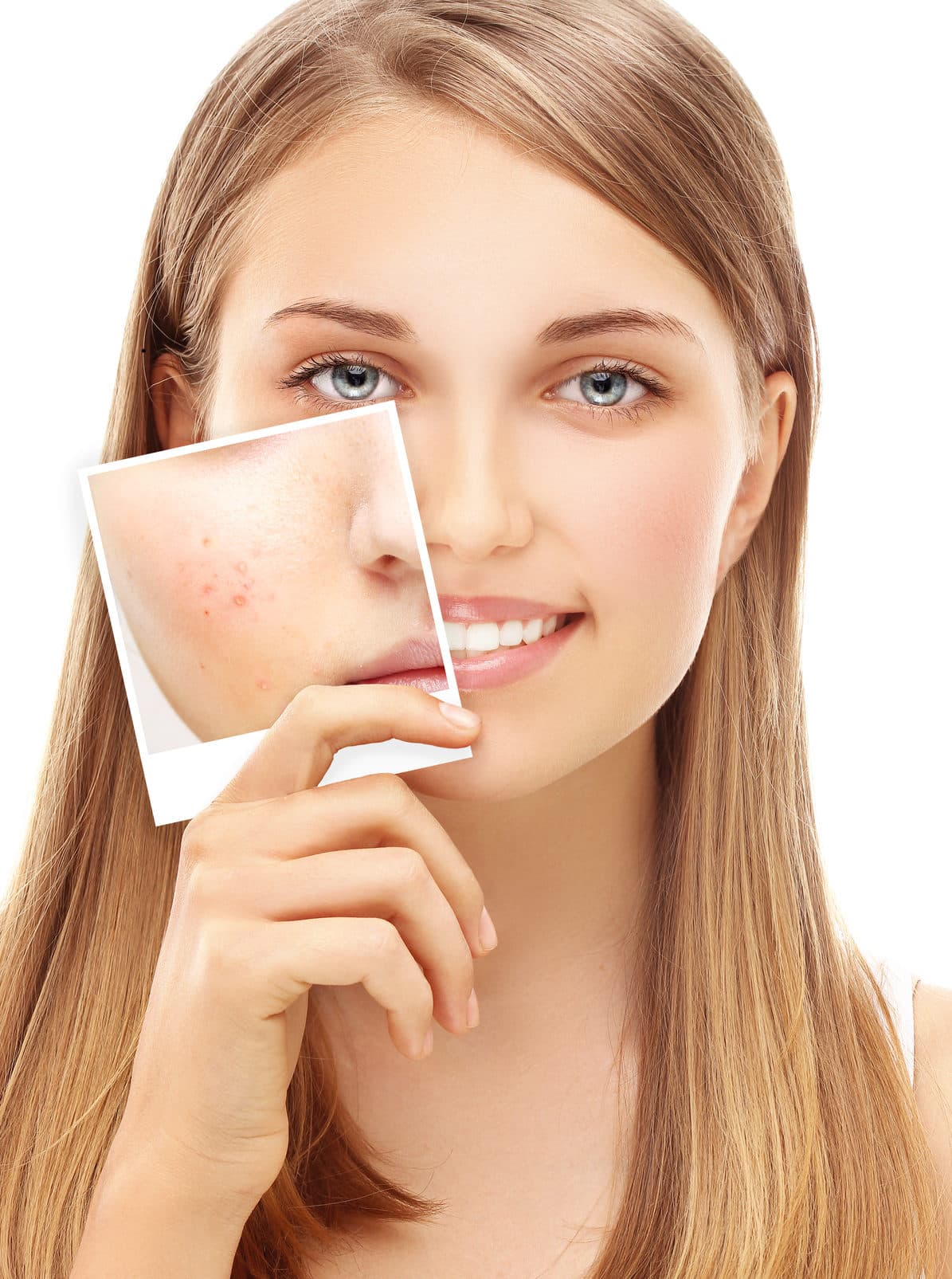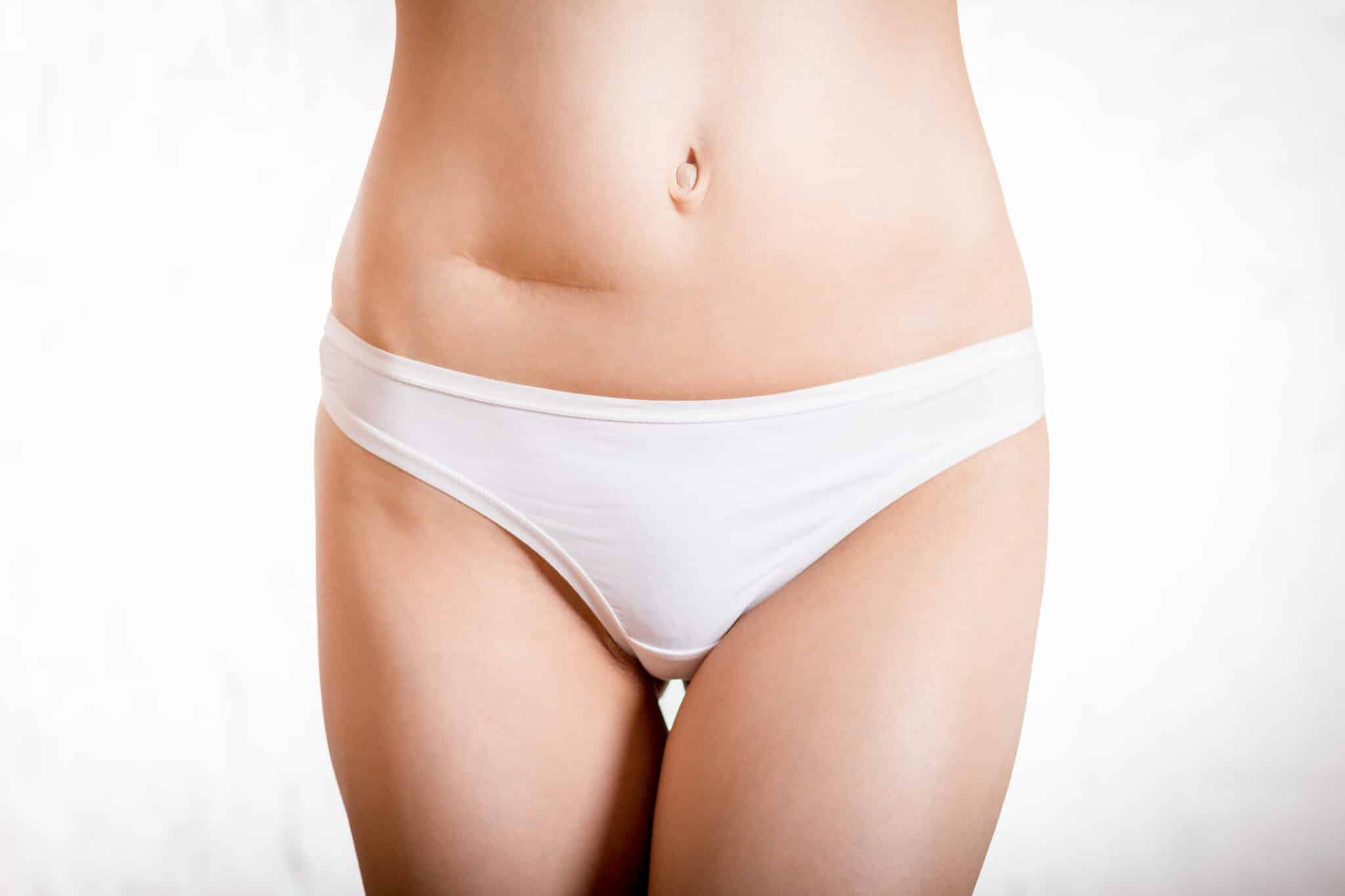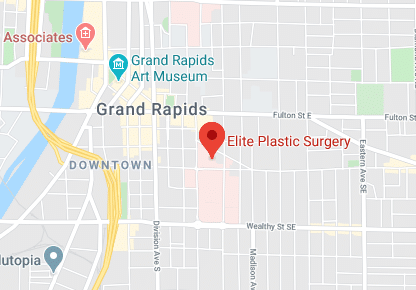Elite Plastic Surgery Grand Rapids performs these cosmetic procedures to improve and often to eradicate scars resulting from trauma, burns, or previous surgery. Scar revision may involve surgery, injections or even laser treatment of the scars. Call (616) 459-1907 today to schedule your Scar Revision consultation in Grand Rapids!
What Is Scar Revision?

Have you ever experienced an injury, got stitches, or underwent surgery? Then you are probably familiar with scars. Scar revision is a procedure that intends to lessen the appearance of scars caused by trauma or injury. Scars typically tend to fade over time, but that is not always the case. Due to disruptions during healing, scars can become raised, red, and deformed. Some people may embrace their prominent scars, but not everyone is so happy with their marks. For these people. there are a number of procedures available to make scarring less visible.
Candidates For Scar Revision
Scar revision is a great procedure for people of all ages, and you may be a good candidate if you:
- Do not smoke
- Have realistic expectations
- Decided to go through with the procedure on your own
- Are unhappy with the appearance of a scar
- Do not have active infections or acne breakouts.
Scar revision is a very personal and very individualized procedure that should not be influenced from the outside.
Types Of Scar Revision and Scar Removal Treatments
There are many options to reduce and minimize the appearance of scars on the skin. The best procedure, however, depends on the location and severity of the scar, as well as the health of the patient. Most importantly, it depends on the extent of revision the patient desires. Treatment options for scar revision include:
- Subcision – This procedure is optimal for treating indented scars. Fibers beneath the scar are broken up with a needle, effectively raising the tissue to the elevation of surrounding skin.
- Excision – This procedure is used to treat severe skin-tightening scars known as contracture scars. A scalpel is used to remove the scar and damaged tissue and a skin graft is placed to restore the appearance of skin.
- Punch Elevation – This treatment is effective for treating certain types of acne scars. A punch tool is used in place of a scalpel to remove small quantities of skin without damaging surrounding tissue. The base of the scar is then elevated, making the scar appear less pronounced.
- Surface Treatments – Cosmetic procedures such as microdermabrasion, chemical peels, and skin bleaching are effective in treating skin discolorations. However, multiple treatments are required to achieve noticeable results.
- Laser Treatments – Laser treatments can be used to gently removed damaged skin and reveal new, undamaged skin. These treatments also stimulate collagen production, which results in long-lasting results as the body will naturally continue to heal.
- Fillers – Dermal fillers can be used to fill in indented scars. This results in a smooth and even appearance to the surrounding skin.
Patients are advised to stop smoking and avoid blood-thinning medications prior to undergoing scar revision procedures.
Preventing Scarring After Injuries
The appearance and prominence of a scar after injury depends on the healing process of the wound. Some scars are hard or impossible to avoid. However, there are ways to take care of your injury to reduce your risk of permanent scarring. Here are some tips:
- Keep your wound clean
- Change bandages daily
- Follow doctors instructions if you have stitches
- Keep the wound out of direct sunlight
- Don’t pick at the wound
- Keep the wound moist with petroleum jelly
As always, be sure to listen to your doctor’s advice – they know what needs to be done to prevent further injury. If you do wind up with an unsightly scar, your doctor will help you choose the best scar revision option for you.
Recovery From Scar Revision
As most treatments for scar revision are minimally invasive, they tend not to require downtime. Patients do report minor swelling, discomfort, and discoloration for a few weeks following treatment. The results of scar revision treatment are immediate, however final results may take a few months to fully achieve.
Risks Of Scar Revision Treatments
Due to the non-invasive nature of most procedures, scar revision is considered to be generally safe. However, no procedure is without its risks. Risks of scar revision include:
- Infection
- Bleeding
- Reaction to anesthesia
- Numbness of the skin
- Skin discoloration
- Sensitivity
- Poor healing
A secondary procedure may be necessary if uneven or poor healing occurs. Some forms of scar revision come with the risk of developing a secondary scar. Be sure to ask your doctor about all your concerns prior to your procedure.
Schedule a Consultation for Your Scar Treatment in MI, or Call for Questions
Tired of seeing your unsightly scar every day? Learn more about scar revision and find out if you are a good candidate. Call (616) 459-1907 to schedule a consultation with our team in Grand Rapids, MI.


